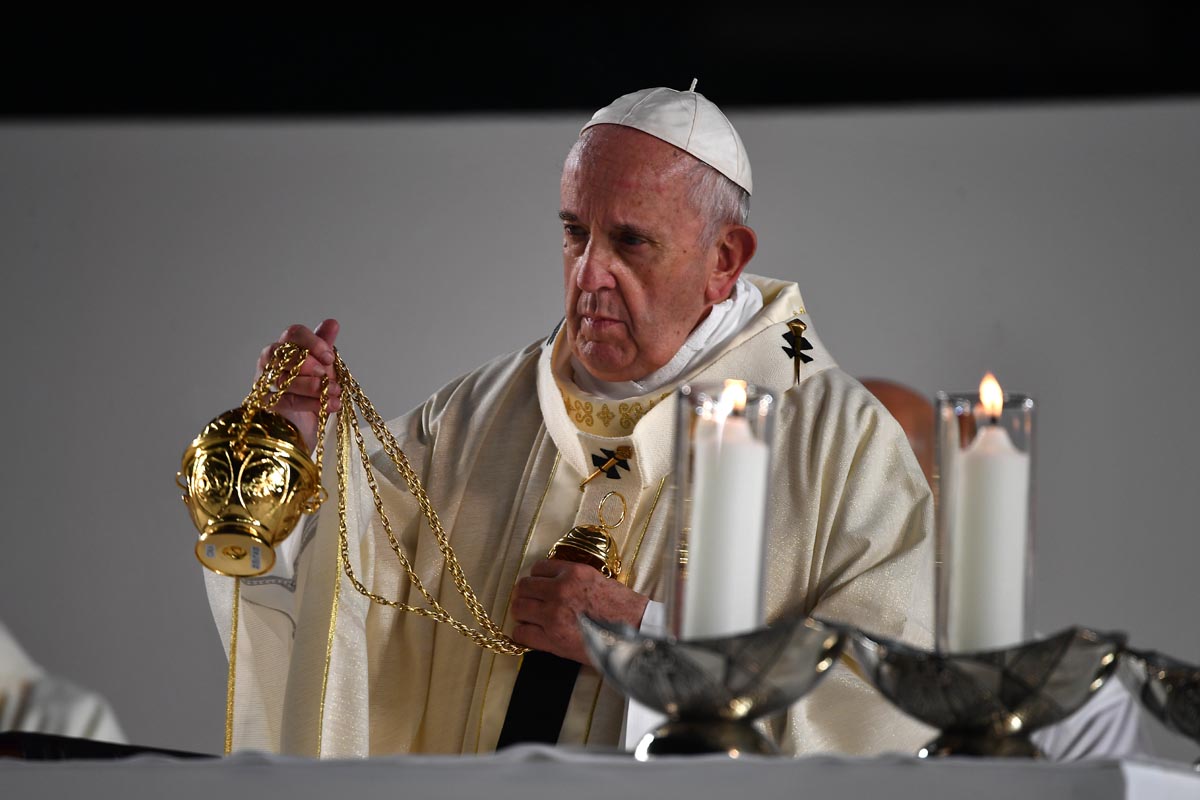Asian Wrestling Oly Qualifiers: Aman Sehrawat falls at last hurdle as India falters in freestyle
Jaideep, in men's 74kg, was eliminated in the quarterfinals while Sumit too lost at the same stage in the men's 125kg division.
He has urged world leaders to end the stockpiling of nuclear weapons, saying it offered their nations a false sense of security.

Pope Francis takes part in a holy mass in front of thousands at the Tokyo Dome stadium in Tokyo on November 25, 2019. Pope Francis called on November 25 for renewed efforts to help victims of Japan's 2011 "triple disaster" of earthquake, tsunami and the Fukushima meltdown, noting "concern" in the country over the continued use of nuclear power. (Vincenzo PINTO / AFP)
Historians will record the Pope’s visit to Nagasaki and Hiroshima on Sunday as famously appropriate. It was verily a moment in history as he made a presentation to the world from Japan’s Ground Zero and close to 75 years after the nuclear holocaust. His speech was addressed to the world at large, not to forget the recent threat by Pakistan’s Prime Minister that his country could ignite a “nuclear war” over the change in the status of Kashmir.
He has urged world leaders to end the stockpiling of nuclear weapons, saying it offered their nations a false sense of security. There seldom has been so stout a denunciation of nuclear weaponry, and never in the two sites of the catastrophe. Condemning what he called the “unspeakable horror”, Pope Francis has, in course of the visit, called for a ‘world without nuclear weapons’.
His was a spirited appeal for disarmament as he toured Japan’s atomic bomb sites and met survivors of the 1945 nuclear bombing. He has in effect brought his campaign to abolish nuclear weapons to the only two cities that were ever hit by atomic bombs. “So many men and women disappeared, leaving behind only shadows and silence”. The message could scarcely have been more poignant, of a kind that many world leaders would be proud of, but few able to claim.
Advertisement
“The use of atomic energy for nuclear war is today, more than ever, a crime not only against the dignity of human beings but against any possible future for our common home. The use of atomic energy for purposes of war is immoral, so too the possession of nuclear weapons is illegal.” The subtext of the caveat must be that geostrategy in the 21st century is potentially more hideous than it was during the Second World War. That precisely is the connotation of the march of time. Peace remains ever so elusive.
The Pope realises this more accurately than some of the world leaders. Pope Francis has iterated his support for a 2017 treaty to ban nuclear weapons. That agreement was endorsed by twothird of UN members, but opposed by the big nuclear powers. They claim that it could undermine nuclear deterrence, which in their reckoning has averted conventional war. The 82-year-old pontiff has long been a vocal opponent of nuclear weapons. The Holy See was among the first to sign and ratify a 2017 nuclear prohibition treaty.
But nuclear powers, and countries such as Japan that fall under the US nuclear umbrella, have refused to sign it. “In a world where millions of children and families live in inhumane conditions, the money that is squandered and the fortunes made through the manufacture, upgrading, maintenance and sale of ever more destructive weapons, are an affront crying out to heaven,” the Pope said. The message must resonate no less in Iran and North Korea and in the echo chambers of the big nuclear powers generally.
Advertisement